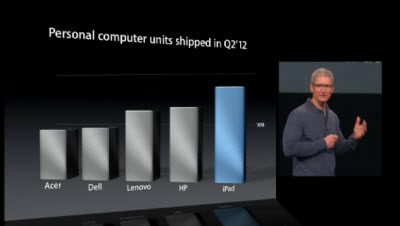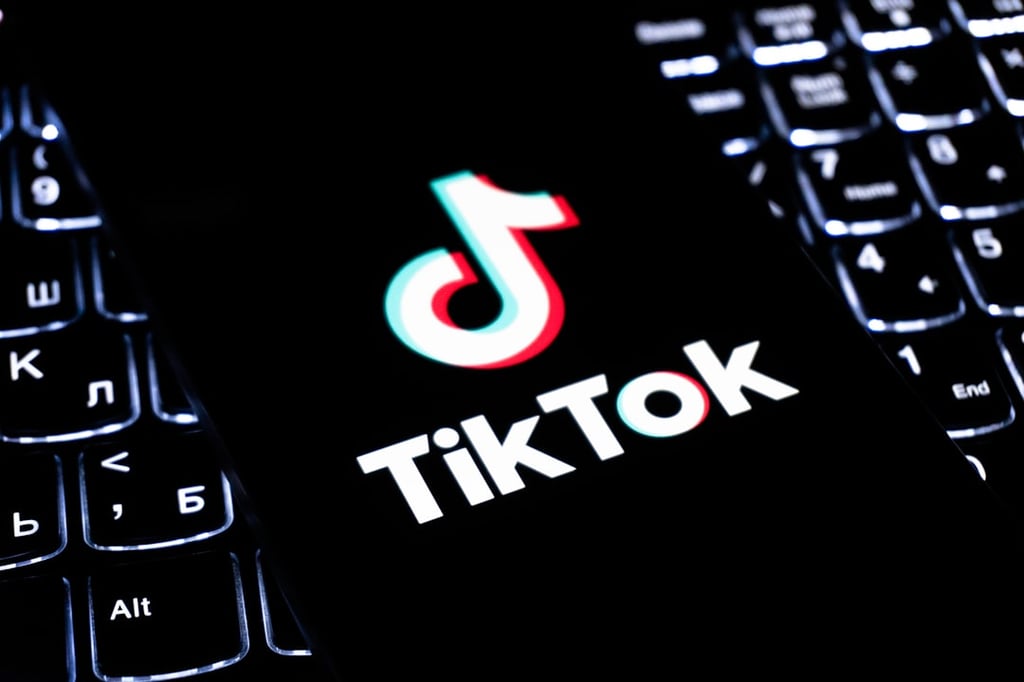Datamation content and product recommendations are
editorially independent. We may make money when you click on links
to our partners.
Learn More
Windows 8 is out, and while the hype is far more subdued compared to previous releases – I think echoes of the Windows 95 launch are still reverberating around the globe – Microsoft and its hardware partners are hoping the new OS will jump-start the stalling PC industry.
It won’t.
There’s no doubt that the PC industry is in need of a kick from a set of heart paddles. The yearly to 18-month upgrade cycle has vanished, with consumers and businesses both making their PCs last much longer. This is bad for PC OEMs such as Dell and HP that rely on sales to buoy their bottom lines. It’s very bad for Microsoft, which is highly reliant on PC sales to sell Windows.
There’s no doubt that Windows 8 is an exciting launch. For the first time, Microsoft is pushing Windows hard to a variety of new devices, such as tablets, convertibles, and hybrid notebooks. Sure, these are all variations on the same theme, but at least they do offer variation.
The problem is, it’s too little, too late. Here’s why it’s too late.
First, Apple. Apple and Microsoft have always been rivals of sorts, but most of this rivalry was generated by the fan base rather than the companies themselves. Go back ten years and Microsoft was the king, while Apple was scrabbling in the dirt with single-digit user share percentage. And, if we think in terms of desktops and notebooks, nothing’s really changed. Microsoft still dominates, Apple is way off in the rear view mirror.
But Apple changed the game. Instead of focusing on traditional computers, Apple moved into mobile devices. The iPod led to the iPhone, and with this device Apple created a whole new market, and set about dominating it.
And dominate that market is certainly did.
And then the iPhone led to the iPad. Many at the time saw the iPad as a massive gamble for Apple. Microsoft has tried – and failed – for over a decade to make tablets mainstream, and now here was the computing underdog from Cupertino thinking it could do better.
Much to the surprise of tech pundits, the iPad became an overnight success, and now the iPad outsells PC sales from any of the big names. It’s fair to say that the iPad is smoking the competition.
There are now over 100 million iPads out there. These people have bought into the Apple ecosystem and, chance are, won’t be tempted by whatever new hardware Microsoft’s hardware partners might have to offer.
Money is finite, and while people are spending money on iPads and iPhones, they’re not spending money on PCs.
But it’s not just Apple that’s an obstacle in Microsoft’s way.
There’s also Android. Specifically, popular Android-powered tablets such as Amazon’s Kindle Fire, Google’s Nexus 7, and the Samsung Galaxy Tabs. While these devices don’t compete directly with desktop and notebook PCs, they are taking attention – and dollars – away from the PC industry.

Again, while people are spending on Android tablets, they’re not spending on PCs.
Android tablets also present another hindrance: price. With tablets such as the Nexus 7 and Kindle Fire HD starting at $199 – a price point where Amazon and Google aren’t making a dime on sales – this makes PCs, even the cheap PCs, seem extravagantly expensive.
For most people, Windows is little more than a platform for firing up a browser and surfing the web. Consumers are now savvy enough to realise that they don’t need Windows for this most basic of tasks (and certainly not the latest version of Windows). Even a cheap – not to mention nasty – $99 Android tablet is more than adequate for people’s Facebook fix.
Another problem facing Microsoft is Moore’s law. Counjoured up by Intel co-founder Gordon Moore in the 1970s, put simply it states that number of transistors in a chip – and as such the power – doubles every year or so.
What this has meant is that PCs now offer more power than the average user knows what to do with. People don’t need to upgrade anywhere near as often as they once did. Once, when we used MHz to measure CPU speeds, a jump of 100MHz was significant; now we measure in GHz, it’s nothing.
Even more cores is irrelavant to most people. A dual-core processor from 2008 is perfectly adequate for most people’s needs. Processors with triple, quad, and hex cores are, as far as the average user is concerned, merely marketing fluff, with most applications only able to take full advantage of two cores at most.
Facebook feels no different whether you’re using a dual-core machine, or one with 6 cores. In addition, it looks the same in Windows XP as it does in Windows 8.
Moore’s law has also affected PCs in another way. Take this piece I’m writing here. Once I would have needed a PC running a word processor to type on, but today I’m actually writing this on an iPad. My iPad – my workhorse iPad is still a first-generation model that I bought back in 2010 – does the job just fine.
It works so well that it has essentially replaced my notebook, and it packs enough power that I only need my big quad-core desktop behemoth for heavy photo and video editing. Oh, and gaming.
Downward Path
The PC industry is in a decline. It is an inevitable side effect of more players and more devices entering the market. While I’m not saying that Windows is dead, or even dying – it isn’t – its importance is being diluted, and this is, and will continue to have, a detrimental effect on the PC industry.
People will want PCs for the foreseeable future, but they no longer need to buy a new one every year or so. Microsoft, and the hardware partners, are going to have to get used to this changing landscape.
Is there anything that could make Windows 8 relevant? Yes. Apps.
Microsoft has an app store – much like the app stores baked into Android or iOS devices – built into Windows 8. If Microsoft can get compelling new apps – think the next big thing, like Angry Birds was when it came out – into its app store before anyone else, then this could drive people to Windows 8.
The problem with this is that developers put their apps where the biggest audiences are, and right now that’s on Android and iOS. Microsoft might be able to strike deals to get exclusives into its store (just like it does with the Xbox platform at times). But unless these apps are compelling enough, people will just wait until the app is available on the platform they already have access to.
Expecting people to buy a Windows 8 system to get access to an app that’s likely to cost between $0.99 and $5 is plain crazy.
Microsoft’s app store has a long way to go before it is compelling enough – and big enough – to draw people in to Windows 8. Maybe it will be ready when Windows 9 is out.
-
Ethics and Artificial Intelligence: Driving Greater Equality
FEATURE | By James Maguire,
December 16, 2020
-
AI vs. Machine Learning vs. Deep Learning
FEATURE | By Cynthia Harvey,
December 11, 2020
-
Huawei’s AI Update: Things Are Moving Faster Than We Think
FEATURE | By Rob Enderle,
December 04, 2020
-
Keeping Machine Learning Algorithms Honest in the ‘Ethics-First’ Era
ARTIFICIAL INTELLIGENCE | By Guest Author,
November 18, 2020
-
Key Trends in Chatbots and RPA
FEATURE | By Guest Author,
November 10, 2020
-
Top 10 AIOps Companies
FEATURE | By Samuel Greengard,
November 05, 2020
-
What is Text Analysis?
ARTIFICIAL INTELLIGENCE | By Guest Author,
November 02, 2020
-
How Intel’s Work With Autonomous Cars Could Redefine General Purpose AI
ARTIFICIAL INTELLIGENCE | By Rob Enderle,
October 29, 2020
-
Dell Technologies World: Weaving Together Human And Machine Interaction For AI And Robotics
ARTIFICIAL INTELLIGENCE | By Rob Enderle,
October 23, 2020
-
The Super Moderator, or How IBM Project Debater Could Save Social Media
FEATURE | By Rob Enderle,
October 16, 2020
-
Top 10 Chatbot Platforms
FEATURE | By Cynthia Harvey,
October 07, 2020
-
Finding a Career Path in AI
ARTIFICIAL INTELLIGENCE | By Guest Author,
October 05, 2020
-
CIOs Discuss the Promise of AI and Data Science
FEATURE | By Guest Author,
September 25, 2020
-
Microsoft Is Building An AI Product That Could Predict The Future
FEATURE | By Rob Enderle,
September 25, 2020
-
Top 10 Machine Learning Companies 2021
FEATURE | By Cynthia Harvey,
September 22, 2020
-
NVIDIA and ARM: Massively Changing The AI Landscape
ARTIFICIAL INTELLIGENCE | By Rob Enderle,
September 18, 2020
-
Continuous Intelligence: Expert Discussion [Video and Podcast]
ARTIFICIAL INTELLIGENCE | By James Maguire,
September 14, 2020
-
Artificial Intelligence: Governance and Ethics [Video]
ARTIFICIAL INTELLIGENCE | By James Maguire,
September 13, 2020
-
IBM Watson At The US Open: Showcasing The Power Of A Mature Enterprise-Class AI
FEATURE | By Rob Enderle,
September 11, 2020
-
Artificial Intelligence: Perception vs. Reality
FEATURE | By James Maguire,
September 09, 2020
SEE ALL
ARTICLES








